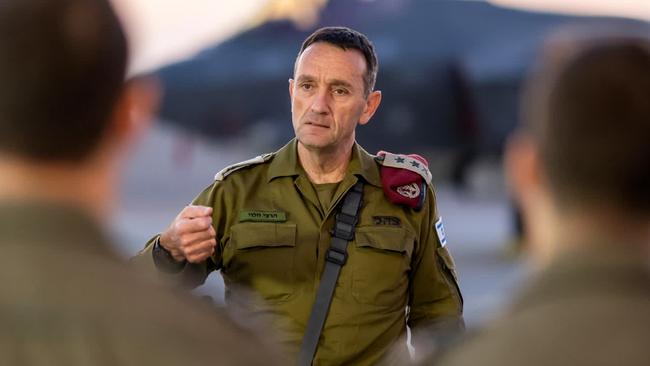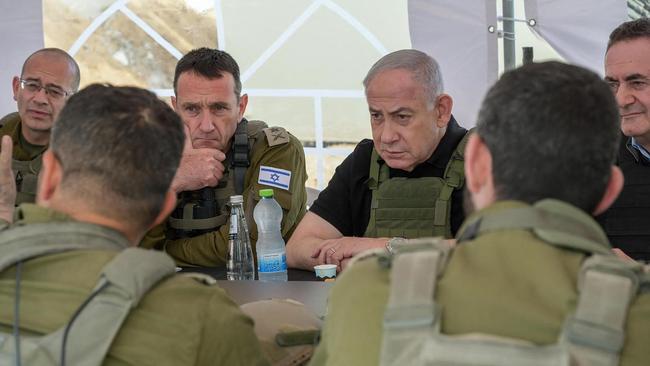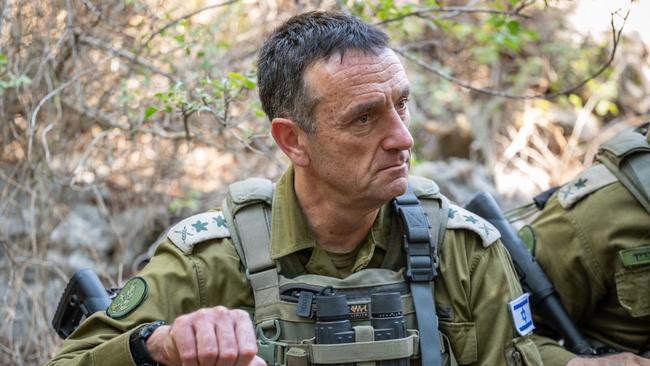‘Failed to defend the citizens’: Israel’s military chief resigns
After months of disagreements with Benjamin Netanyahu on how to handle the war in Gaza, Lieutenant General Herzi Halevi signals his departure after making ‘significant achievements’.

Israel’s military leader said he would resign, citing the army’s failure to protect the country on October 7, 2023, the most senior official to leave a position over the worst attack in Israeli history.
The resignation of Lieutenant General Herzi Halevi comes after Israel racked up achievements in its fight against Iran and its web of allied militias such as Hezbollah, and in the first week of a phased ceasefire with Hamas in Gaza.
“On the morning of the 7th of October, the Israeli military under my direction failed in its task to defend the citizens of Israel,” Halevi wrote in a resignation letter, adding that he had come to the decision long ago.
He said he was choosing to leave at a time when the military has made “significant achievements and is in the process of implementing the agreement to release our hostages”.
He said he hoped to finish his role by March 6.
Halevi’s move also comes after months of disagreements with Israeli Prime Minister Benjamin Netanyahu over how to handle the war in Gaza.

Halevi has been under pressure from Netanyahu’s supporters in the government to resign.
The two men disagree over how soon Israel needs to designate a replacement for Hamas to govern Gaza, a step the Israeli government hasn’t taken.
“The army has been pushing the government for an endgame in Gaza and the government has refused to do it, and that has long been a source of tension between them,” said Yaakov Katz, a fellow for the Jerusalem-based Jewish People Policy Institute and author of four books on the Israeli military.
In a phone call with Halevi, Netanyahu “thanked him for his many years of service,” a statement from the prime minister’s office said.
Later, in a televised speech, Halevi said Israel hasn’t yet achieved its goal of destroying Hamas’s military capacity.
“To confront Hamas’s terrorist and guerrilla capabilities, we still have more tasks that we are determined to complete decisively,” he said.
Within the military, there had been a growing suspicion that Halevi would either be fired or resign as the pace of fighting slows, military officials said.
Halevi, along with other senior military and intelligence officials, has been blamed for failing to see that Hamas was planning a large attack on Israel despite mounting evidence, including simulations that were visible to army observers along the borders.
The army has also been blamed for failing to quickly respond to the attack, leaving unarmed civilians at the mercy of thousands of militants for hours on end.

In total, 1200 people were killed in the October 7 attack and 250 more were taken hostage by Hamas.
The attack sparked the war in Gaza, in which more than 47,000 Palestinians have been killed, according to local authorities, who don’t say how many were combatants.
The Israeli military is conducting its own investigations into the intelligence failures leading up to the attack and the operational failures that occurred during the attack.
Israeli Defence Minister Israel Katz asked the military to deliver its conclusions by the end of January.
Katz told Halevi this month that he wouldn’t allow any more senior appointments inside Israel’s military until the investigations were complete.
The military leader’s resignation is likely to raise the pressure on other security and political officials to step down, including Netanyahu.
Despite calls for his resignation, the prime minister has said he won’t call for new elections while the country is at war.
But Halevi’s resignation could also reinforce the idea that it was the military, and not the prime minister, who was chiefly responsible for the October 7 failure, analysts said.
Netanyahu has said that he wasn’t informed of Hamas’s attack until it was already under way, and that in the months leading up to the war his security chiefs continuously told him Hamas wasn’t interested in a conflict.
“It will become a political tool for both sides to use,” said Katz.
Typically, Israel’s parliament, or Knesset, task a state commission of inquiry to investigate military failures.
But elected officials haven’t been able to agree on one for the October 7 attack.
Netanyahu’s political opponents have said he is delaying appointing a state commission to avoid taking responsibility for his role.
The prime minister has said that there needs to be a national consensus about who conducts the commission and that these questions should wait for the war’s conclusion.
Other senior military officials have also resigned over the past year, including the military’s deputy chief of staff.
Also on Tuesday, the commanding officer of Israel’s southern command, who is in charge of Israel’s border with Gaza, resigned.
Halevi, who became chief of staff in January of 2023, has increasingly become a target for Israel’s far-right leaders, who accuse him of being weak against Hamas and preventing the military from destroying the group.
“With this chief of staff we can fight, but unfortunately we cannot win,” Israeli Finance Minister Bezalel Smotrich said in an interview with Army radio on Monday.
Smotrich wants full Israeli military occupation in Gaza, something the army opposes because of the manpower it would require and danger to the lives of soldiers.
The defence minister recommends a candidate for the chief of staff, and it is then approved by the government.
In this case, the defence minister, Katz, is from Netanyahu’s Likud party and is expected to hold sway over the recommendation.
“Formally the prime minister doesn’t have a role in it,” said Amichai Cohen, a legal scholar at the Jerusalem-based think tank the Israel Democracy Institute, of who chooses the next chief of staff. “But informally it’s quite clear he has veto power.”
Wall Street Journal





To join the conversation, please log in. Don't have an account? Register
Join the conversation, you are commenting as Logout